Should You Water Compost Heaps? Essential Tips for Healthy Composting
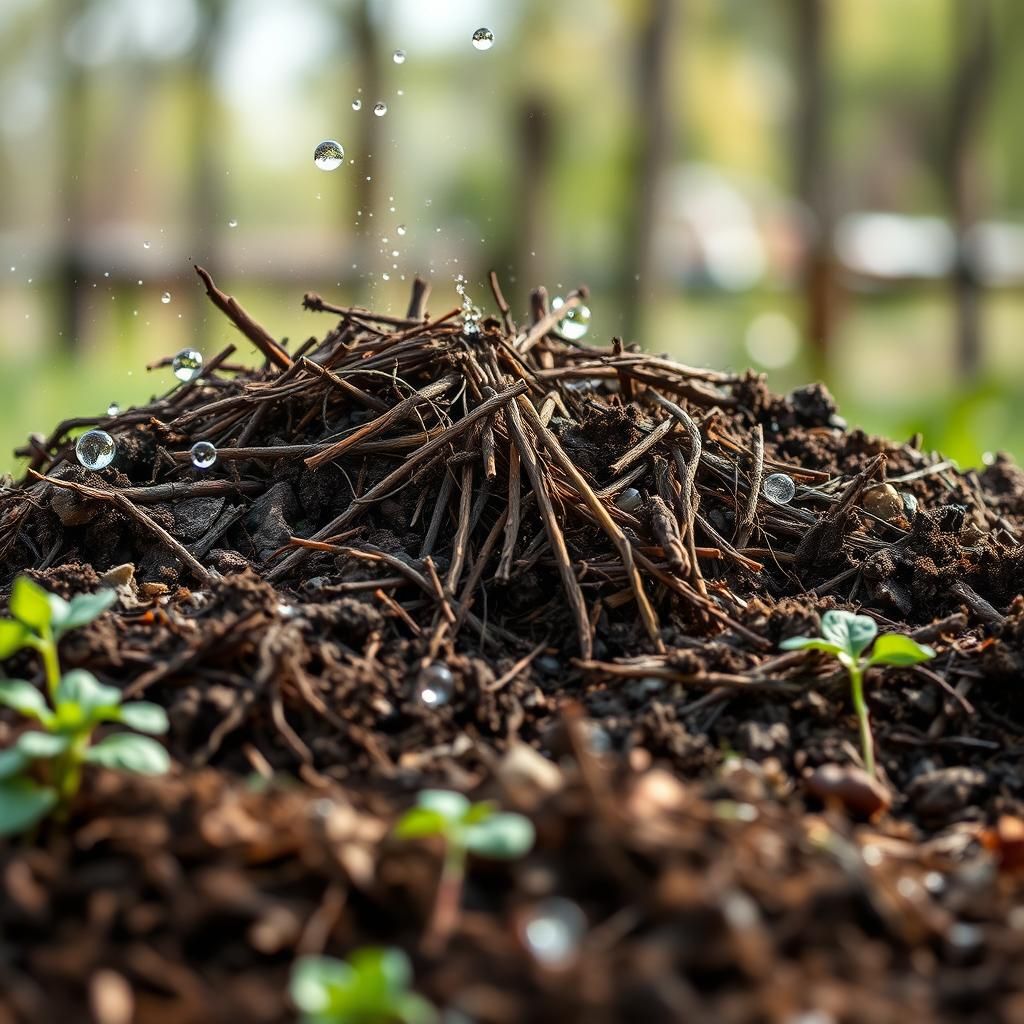
When it comes to composting, one of the most frequently debated topics is whether or not to water compost heaps. Understanding the moisture needs of your compost is essential for creating a healthy and effective compost pile. This article will delve into the intricacies of compost moisture, helping you determine when to add water, how much to use, and the signs that indicate your compost is too dry or too wet. By following these essential tips, you can optimize your composting process, ensuring that your organic materials break down efficiently into nutrient-rich compost for your garden.
Should You Water Compost Heaps?
Watering compost heaps can be essential to maintaining a healthy decomposition process. It is important to keep the compost moist, but not soaked; ideally, the moisture content should be similar to that of a damp sponge. This helps facilitate the activity of microorganisms that break down organic matter. If the compost is too dry, decomposition will slow down significantly, leading to odors and attracting pests. Conversely, overly wet compost can become anaerobic, producing foul-smelling gases and inhibiting the essential microorganisms. Regularly checking the moisture level and adjusting by watering if necessary ensures optimal conditions for effective composting.
Importance of Moisture in Composting
Moisture plays a critical role in the composting process as it is necessary for the microorganisms that decompose organic materials. These microorganisms, including bacteria and fungi, require a specific level of moisture to thrive and perform their functions effectively. Without adequate moisture, the decomposition process can become sluggish, leading to incomplete composting and potential nutrient loss. Maintaining a balanced moisture level not only accelerates the decomposition process but also improves the overall quality of the resulting compost.
How to Check Moisture Levels
To determine if your compost heap needs watering, you can perform a simple squeeze test. Take a handful of compost and squeeze it tightly; if a few drops of water come out, the compost has sufficient moisture. If it crumbles in your hand or is completely dry, it likely requires additional water. On the other hand, if it forms a muddy mass, it may be too wet. Regular monitoring during the composting process allows for timely adjustments to keep the pile balanced.
Signs of Overwatering
Overwatering a compost heap can lead to several negative signs, such as an unpleasant odor, which indicates that anaerobic conditions are developing. In addition, you may notice excessive mold growth or the attraction of pests, like flies, that are drawn to moist environments. When this happens, it is essential to aerate the pile by turning it and adding dry materials like shredded leaves or straw to improve drainage and restore the compost’s health.
Frequency of Watering
The frequency of watering depends on several factors, including climate, the size of the compost heap, and the materials used. Typically, during dry spells or hot weather, you may need to water more frequently, perhaps every few days. In cooler and wetter climates, less frequent watering may be sufficient, around once a week. Monitoring the compost and adjusting the watering schedule to maintain optimal moisture levels will ensure effective composting.
Best Practices for Watering Compost
When watering your compost heap, it is best to use a soaker hose or a watering can with a fine nozzle to avoid disrupting the structure of the heap. Water should be applied evenly across the surface to enhance penetration, and it’s advisable to water in the early morning or late afternoon to minimize evaporation. Also, incorporating dry materials or turning the compost after watering can help distribute moisture more evenly throughout the pile.
| Aspect | Ideal Condition | Signs of Too Dry | Signs of Too Wet |
|---|---|---|---|
| Moisture Level | Damp sponge-like | Crumbles; odors | Odor; soggy mass |
| Microbial Activity | High | Low | Decreased |
| Temperature | Warm | Cool | Unstable |
How often should you water your compost heap?
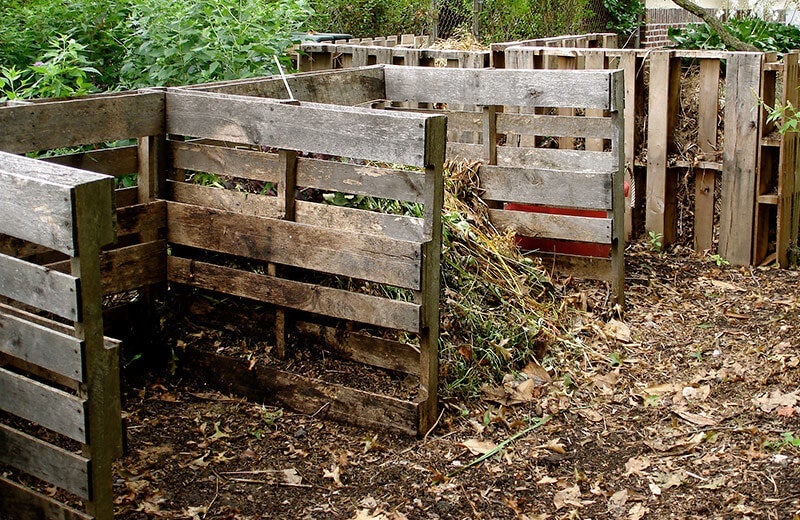
To maintain an effective compost heap, it is crucial to monitor its moisture level. Generally, you should water your compost heap when it appears dry, which can vary based on environmental conditions and the materials included in the compost. The ideal moisture content for compost should resemble that of a damp sponge; this means that it should be moist but not soggy. Typically, you may need to water your compost every few weeks, especially in dry climates or during the hotter months. However, it's essential to assess the compost regularly to ensure it remains healthy and aerobic.
Understanding the Importance of Moisture
Moisture plays a vital role in the composting process. Without adequate water, beneficial microorganisms cannot thrive, which can stunt the decomposition process. Water helps to:
- Promote Microbial Activity: Microorganisms require moisture to function effectively and break down organic materials.
- Facilitate Nutrient Release: Moist compost supports nutrient leaching, which helps make compost rich in valuable nutrients.
- Maintain Temperature: Proper moisture levels help in maintaining the ideal temperature range for decomposition.
Signs That Your Compost Heap Needs Water
Identifying when your compost heap requires moisture is vital for ensuring effective decomposition. Look for these signs:
- Dry Surface: If you notice that the surface of your compost heap feels dry or dust-like, it's time to add water.
- Odor Issues: A compost heap that dries out can develop unpleasant odors, indicating that the microbial activity is not optimal.
- Slow Decomposition: If materials aren't breaking down as expected, lack of moisture might be the issue.
How to Water Your Compost Heap Effectively
When watering your compost heap, applying water correctly is essential for optimal results. Follow these tips:
- Use a Hose or Watering Can: Apply water evenly, ensuring that all materials in the heap receive some moisture.
- Avoid Overwatering: Ensure not to make the compost heap soggy, which can lead to anaerobic conditions.
- Incorporate Additional Materials: If you're adding wet materials like kitchen scraps, adjust your watering accordingly.
Seasonal Considerations for Watering
The frequency of watering your compost heap can vary based on the season. Consider the following:
See also:
- Summer Months: During hot weather, compost heaps tend to dry out quickly; more frequent checks and watering may be necessary.
- Winter Conditions: In colder months, decomposition slows down, and you may need to water less often.
- Rainfall Impact: Natural rainfall can provide adequate moisture; monitor your compost heap after significant rain events.
Types of Materials and Their Water Needs
Different materials in your compost heap can affect how often you need to water. Take these factors into account:
- Green Materials: Items like grass clippings and vegetable scraps are high in moisture and may reduce your need to water.
- Brown Materials: Dry leaves, cardboard, or straw absorb more moisture, possibly requiring you to add water more frequently.
- Compost Activators: Adding wet activators or manures can help maintain moisture levels and enhance decomposition.
Should you water after putting down compost?
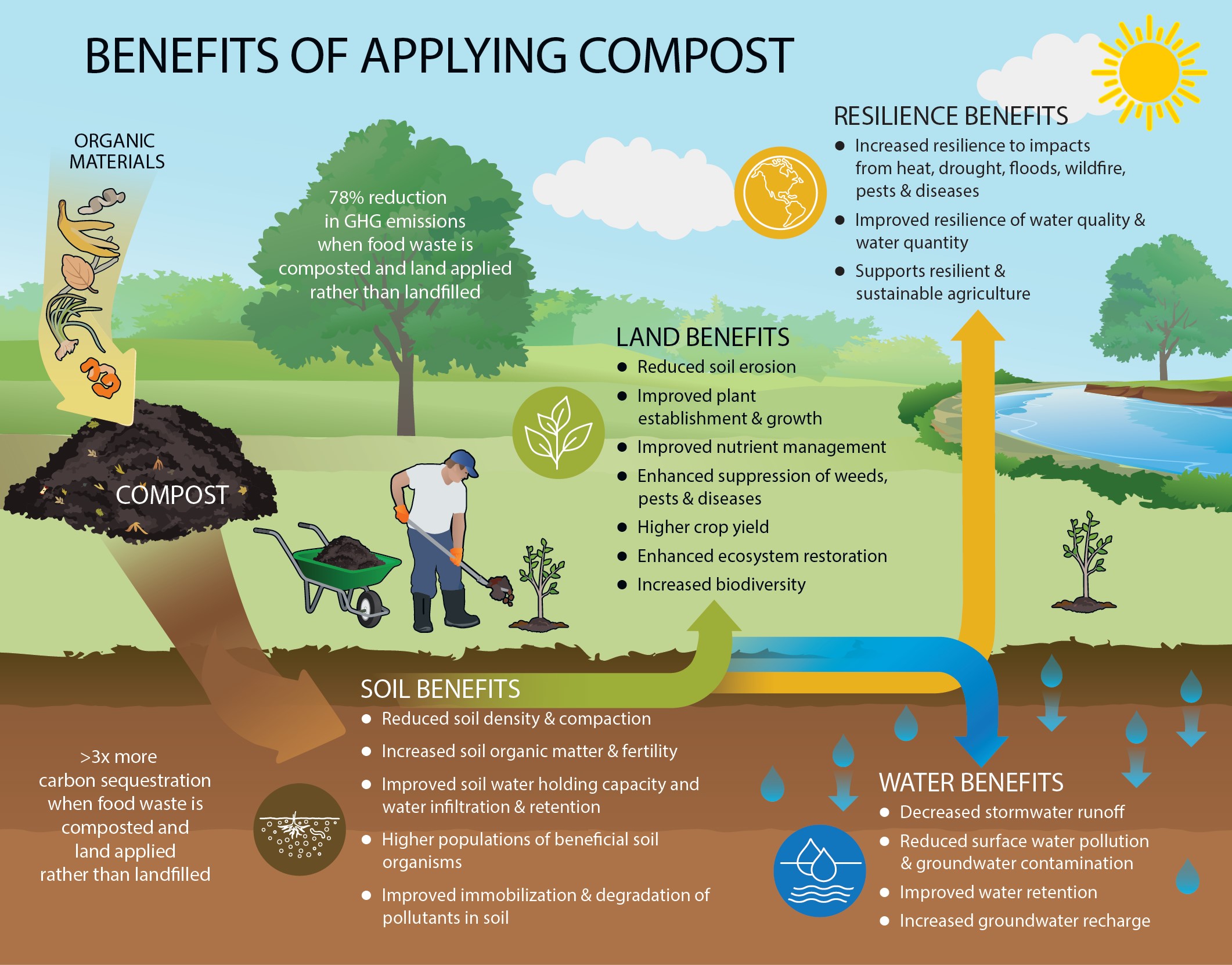
Yes, you should water after putting down compost. Watering your compost helps to initiate the decomposition process, ensuring that the nutrients within the compost are readily available for your plants. Moisture is crucial for facilitating microbial activity, which is essential for breaking down organic matter in the compost. When compost is dry, the microorganisms that promote decomposition become inactive, delaying the release of nutrients and the improvement of soil structure.
Moreover, watering after applying compost aids in incorporating the compost into the soil, creating a more uniform distribution of nutrients. This process can be especially important when using compost for established garden beds, as it ensures that the compost does not simply sit on top of the soil but blends in with the existing soil layers.
Benefits of Watering After Compost Application
Watering after applying compost has several benefits:
- Stimulates Microbial Activity: Moisture encourages the growth of microorganisms that are vital for breaking down organic material.
- Improves Soil Structure: Water helps to integrate compost into the soil, enhancing the overall soil texture and aeration.
- Enhances Nutrient Availability: With adequate moisture, nutrients become more accessible to plants, leading to better growth.
How Much Water Is Needed?
The amount of water needed after applying compost depends on several factors, including climate and soil conditions.
- Soil Moisture Level: Check if the soil is already moist; if it is, you may need only light watering.
- Weather Conditions: Hot, dry weather may require more water to adequately moisten the compost.
- Compost Thickness: Thicker layers of compost may need additional water to ensure proper penetration.
When to Water After Composting
Timing is crucial when it comes to watering after applying compost.
- Immediately After Application: It's best to water right after applying compost to kickstart the decomposition process.
- Follow-Up Watering: Monitor soil moisture and provide additional watering as needed, especially during dry spells.
- Seasonal Considerations: Adjust your watering frequency based on seasonal weather conditions and plant needs.
Potential Issues from Overwatering
While watering is essential, overwatering can also present challenges.
- Saturation: Too much water can lead to soil saturation, depriving plants of oxygen.
- Leaching of Nutrients: Excessive water may wash away essential nutrients, reducing their availability to plants.
- Root Rot: Continuous overwatering can lead to root diseases that harm plant health.
Alternative Methods to Hydrate Compost
Apart from conventional watering, there are alternative methods to hydrate compost.
- Using a Garden Hose: An adjustable hose can provide a gentle spray to prevent compaction of the compost.
- Drip Irrigation: This method allows for slow, steady moisture delivery, particularly effective in garden beds.
- Watering Cans: For small areas, using a watering can can provide more controlled watering.
Can a compost heap be too dry?

A compost heap can indeed become too dry, which can significantly impact the composting process. When the materials in a compost pile dry out, they can inhibit microbial activity, leading to slower decomposition or even halting the process altogether. Microorganisms require moisture to function effectively, as they use water to break down organic matter. If a heap is too dry, the compost can lose its ability to break down properly, resulting in a lack of nutrients and an unfinished product.
Understanding Moisture Levels in Compost
Maintaining the right moisture levels in a compost heap is crucial for efficient decomposition. Moisture aids in the breakdown of materials by providing an environment that supports microbial activity. The ideal moisture content for a compost heap is often compared to that of a damp sponge. If the compost pile feels dry or crumbles when you squeeze it, it is likely too dry.
- Microbial Activity: Microorganisms thrive in a moist environment, and insufficient moisture can limit their effectiveness.
- Decomposition Rate: The rate of breakdown for organic matter slows considerably in dry conditions.
- Balance of Materials: Achieving a balance between greens (nitrogen-rich materials) and browns (carbon-rich materials) helps maintain moisture levels.
Signs of a Dry Compost Heap
Identifying a dry compost heap is important for restoring optimal conditions. Common signs include a crumbly texture, lack of smell, and visible dry materials on the surface. If these indicators are present, it's essential to take action to add moisture back into the compost.
See also: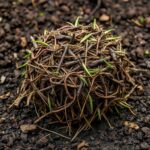
- Texture: If the compost feels overly dry when touched, it is indicative of low moisture levels.
- Odor: A healthy compost heap typically emits an earthy smell; a lack of odor can suggest insufficient moisture.
- Surface Condition: Dry materials may gather on the surface, indicating that inside conditions are not favorable for decomposition.
How to Add Moisture to a Compost Heap
If you find that your compost heap is too dry, there are several effective methods to reintroduce moisture. Regularly turning the compost helps aerate it and can assist in redistributing moisture evenly throughout the pile. Additionally, adding water directly to the compost can help rehydrate it.
- Watering: Lightly water the compost pile until it reaches a damp, sponge-like consistency.
- Adding Greens: Incorporate more nitrogen-rich materials, which are often moister than dry browns.
- Covering with a Tarp: Covering the compost heap with a tarp helps retain existing moisture during dry spells or extreme weather conditions.
Impact of Dry Conditions on Nutrient Cycling
When a compost heap is too dry, nutrient cycling can be severely impacted. Essential nutrients that plants rely on may not break down and become available if the compost remains in a dry state. Nutrient availability is crucial for healthy plant growth and soil fertility.
- Delayed Nutrient Release: Nutrients remain locked in their organic structures, preventing access to plants.
- Poor Soil Health: The soil may lack vital nutrients needed for robust plant growth.
- Decreased Microbial Diversity: A dry environment can result in reduced microbial diversity, further impeding nutrient cycling.
Preventing Excessive Dryness in Compost
Preventive measures can ensure that a compost heap remains adequately moist throughout the composting process. Regular monitoring and diligent maintenance are key in preventing excessive dryness.
- Regular Turning: Periodically turning the compost incorporates air and helps maintain moisture levels.
- Moisture Monitoring: Use a moisture meter or manually check the compost to ensure it is not too dry.
- Strategic Layering: Alternate layers of dry browns and damp greens to help balance moisture in the compost heap.
Can you over water compost?
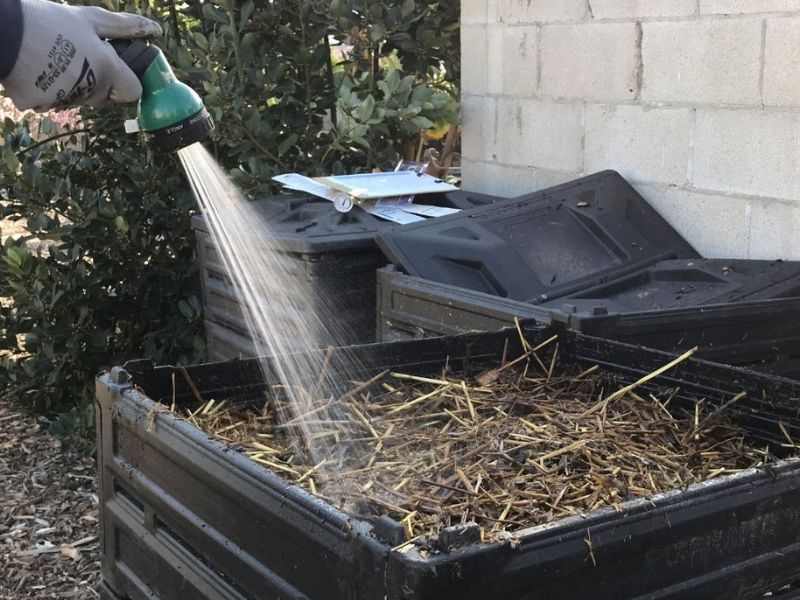
Yes, you can overwater compost, which can lead to several issues that affect the composting process. Compost relies on a balanced environment, and excess water can create conditions that inhibit microbial activity necessary for decomposition. Overwatering can lead to anaerobic conditions, where the oxygen necessary for aerobic bacteria is depleted. This can cause bad odors and slow down the composting process significantly.
Signs of Overwatering in Compost
When compost is overwatered, there are several indicators you can observe:
- Odor: A strong, foul smell is one of the primary signs indicating that the compost is too wet.
- Leachate: Excess moisture creates leachate, a dark, liquid substance that may seep from the compost pile, which is typically a sign of imbalance.
- Slow Decomposition: If the materials in the compost pile are not breaking down as expected, it could be due to excess moisture.
Effects of Overwatering on Microbial Activity
Water is essential for microbial growth, but too much can hinder it:
- Aerobic Bacteria Inhibition: Overwatering can lead to a reduction in aerobic bacteria, which require oxygen to thrive.
- Increased Anaerobic Bacteria: Excess moisture can encourage anaerobic bacteria that produce harmful gases like methane.
- Increased Pathogens: An imbalance in moisture may lead to an increase in harmful microorganisms that can cause disease.
How to Correct Overwatered Compost
If you find yourself with overwatered compost, there are steps you can take to restore balance:
- Add Dry Materials: Incorporate carbon-rich materials like dry leaves, straw, or shredded paper to absorb excess moisture.
- Turn the Pile: Aerating the compost by turning it can help release trapped moisture and introduce fresh air.
- Use a Cover: If it’s raining or snowing outside, consider using a cover to control moisture levels in your compost pile.
Balance Water Levels in Compost
Maintaining proper moisture levels is essential for efficient composting:
- Ideal Moisture Ratio: The compost should be as damp as a wrung-out sponge, retaining moisture without being overly wet.
- Regular Monitoring: Check the moisture content regularly to ensure it is neither too dry nor too wet.
- Adjust According to Conditions: Be vigilant about changing weather conditions that may affect moisture levels in your compost.
Understanding Compost Materials and Water Absorption
Different compost materials vary in their ability to retain moisture:
- Green Materials: Items like fruit scraps and grass clippings release more moisture and can contribute to overwatering.
- Brown Materials: Dry leaves and cardboard absorb moisture and help balance the wet greens.
- Compost Structure: A well-aerated compost pile with varied materials provides adequate drainage and absorption.
Questions from Our Readers
Should you water compost heaps?
Watering compost heaps is essential for maintaining the right moisture level for microorganisms to thrive. If the compost is too dry, it can slow down the decomposition process. Aim to keep the compost pile as moist as a wrung-out sponge, adding water as necessary, especially in dry conditions.
How often should you water a compost heap?
The frequency of watering a compost heap depends on various factors, including climate and pile size. Generally, if the compost feels dry to the touch, it should be watered about once a week. Monitor the moisture level regularly to establish a suitable routine for your specific compost setup.
What happens if you overwater a compost heap?
Overwatering a compost heap can lead to anaerobic conditions, creating a foul odor and slowing down the composting process. An overly wet pile may also become compacted, preventing airflow and hindering the activity of beneficial microorganisms essential for decomposition.
See also: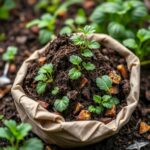
Can you use collected rainwater to water compost heaps?
Yes, collecting and using rainwater to water compost heaps is an excellent option. Rainwater is typically free from chemicals found in tap water and can help maintain the ideal moisture level in your compost while being environmentally friendly.

If you want to read more articles like Should You Water Compost Heaps? Essential Tips for Healthy Composting, we recommend you check out our Compost category.
Leave a Reply
Related Articles